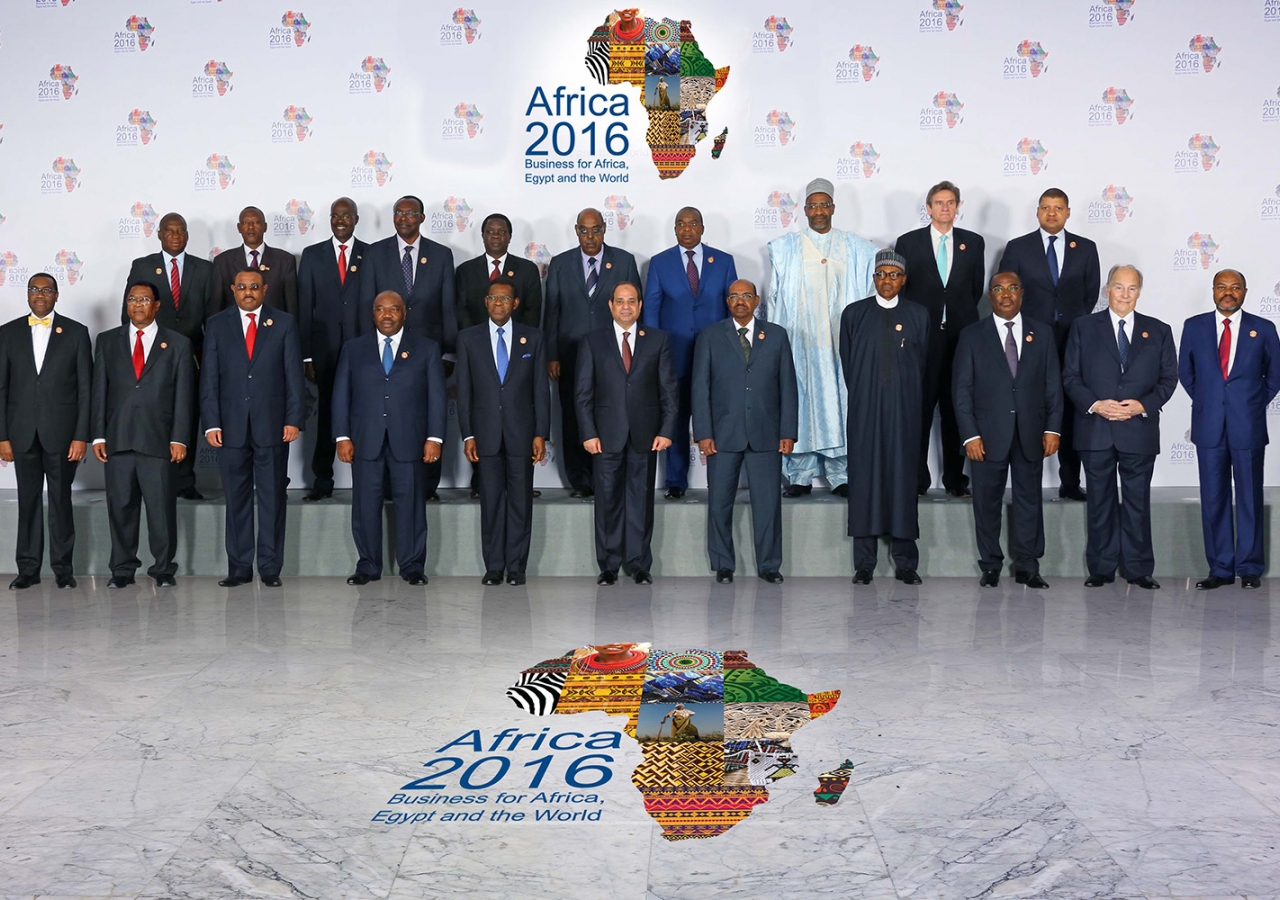Sharm el Sheikh, Egypt, 21 February 2016 — “Africa’s moment has come,” declared Mawlana Hazar Imam, and it has arrived with “an inspiring new spirit of African confidence.”
“What I see emerging today is a refreshingly, balanced confidence in Africa — a spirit that takes encouragement from past progress, while also seeking new answers to new challenges,” said Hazar Imam, “understanding that the best way to move into the future is to walk hand-in-hand with partners who share one’s goals.”
He noted that forging such partnerships requires a commitment to pluralism as well as the strengthening of civil society, so that it can work together with the public and private sectors to advance sustainable social progress.
Mawlana Hazar Imam was speaking at the Africa 2016 Forum taking place this weekend under the patronage of the President of Egypt, His Excellency Abdel-Fattah El-Sisi, alongside the African Union. The gathering brought together African heads of state and more than 800 high-level government and business leaders from across the continent to advance opportunities in regional investment and trade.
Challenges for the continent remain, notably “the enormous problem of unemployment among the young in countries with the highest percentage of youth in the world,” observed Hazar Imam, but economic measures paint a positive picture — “growing GDP and foreign direct investment… the rise of a vital middle class and the expansion of consumer spending, now breaking through the one trillion dollar mark.”
Africa’s confidence today stands in contrast to the historic problem of social fragmentation, in which difference between ethnicity, tribe, nationality, or religion causes “a breakdown of cooperation, an undercurrent of fear, and even a paralysing polarisation in our public life,” observed Hazar Imam. But human diversity can also be seen as a blessing and an opportunity.
“I believe this changing attitude toward diversity is now happening in Africa, in part because of a new sense of African confidence,” said Mawlana Hazar Imam. This is evident from the increased cooperation “across tribal and religious lines, across political divisions and national boundaries.”
Hazar Imam also cited the success of the Aga Khan Development Network, “now active in 13 African countries, in fields ranging from health and education, to travel and hospitality, from food and clothing companies to banking and finance, media and culture.” The vital role played by AKDN agencies in numerous public-private partnerships — including Bujagali Dam in Uganda, the National Park of Mali and AKDN’s educational initiative in East Africa — demonstrates the unique value that civil society can offer.
“Civil society includes a host of professional, labour, ethnic and religious groups, and a broad array of non-governmental organisations,” explained Mawlana Hazar Imam.
“I focus on civil society because I think its potential is often under-appreciated,” continued Hazar Imam. “But, in fact, it is often the quality of the third sector — civil society — that is the ‘difference-maker’. It not only complements the work of the private and public sectors, it can often help complete that work.”
“I believe that social progress will require quality inputs from all three sectors — public, private and civil society.”
Sadly, misunderstanding, underfunding and outright repression often hamper the efforts of civil society. But the values that underpin it are also fundamental to African history.
“For centuries, African life has been characterised by a vast array of indigenous informal groups, sustained by citizen donations and voluntary service,” observed Mawlana Hazar Imam. “Many Africans have grown up amid such groupings, learning to emphasise their mutual interests, to pool their resources, and to share in shaping their local communities.”
Indeed, the influence of civil society has made itself felt at key moments in recent African history. Hazar Imam cited examples, such as in shaping the Arusha Peace and Reconciliation Agreement for Burundi that ended 12 years of civil war, resolving the 2007 violence in Kenya, in the drafting of Tunisia’s new constitution, and in responding to the recent Ebola crisis.
“It is part of the African way,” said Mawlana Hazar Imam.











